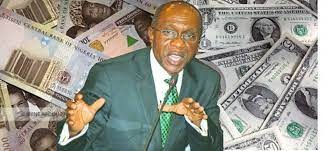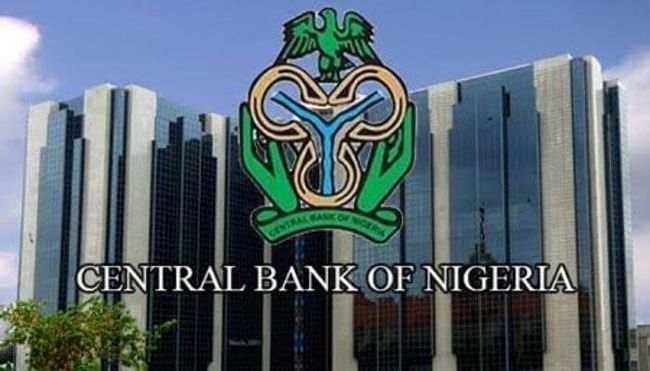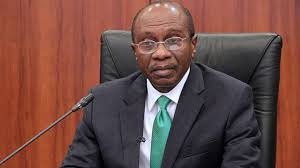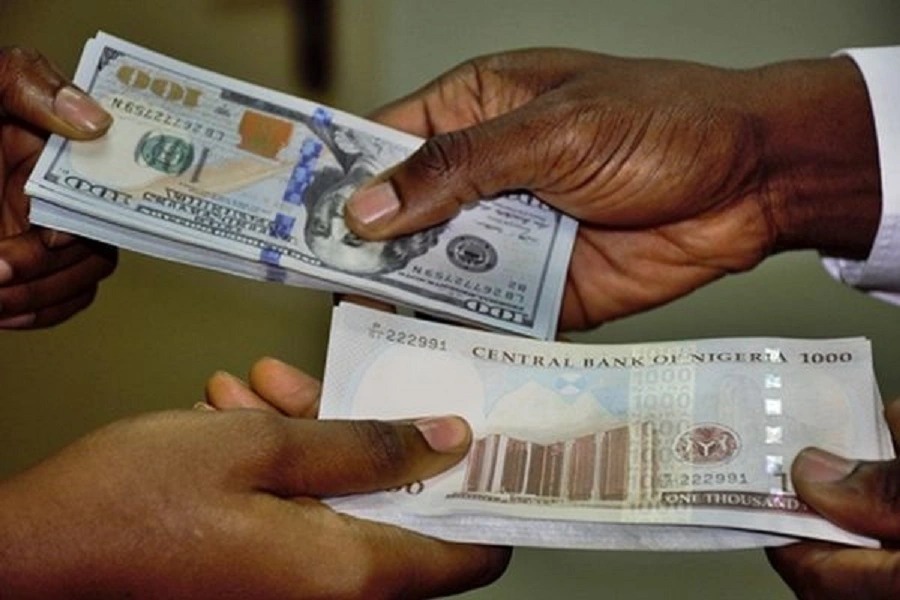 By Ed Malik, A | February 5, 2023
By Ed Malik, A | February 5, 2023
ed@ddnewsonline.com
INTRODUCTION
The fiscal policies put in place by the Central Bank of Nigeria (CBN) to regulate access to forex and trading in FOREX have never really been subjected to analytical and constitutional scrutiny, to ascertain the legality and otherwise, as it affects the micro and macro-economic indices that points to the direct contribution of the Forex to the growth of our GDP. This discourse therefore, is a seminal approach to X-raying the development of the Foreign Exchange Market, both at official and parallel market (aka Black Market) levels, and how it affects the political economy of Nigeria.
BACKGROUND
The Foreign Exchange Market is primarily a trade in currencies. Buyers and Sellers from different countries get to exchange different currencies between one another. The Bank for International Settlement which is the global bank for National Central Banks at the international space also oversees the activities of the foreign exchange market and makes periodic reports on them. A parallel market emerges when there is control pricing and a higher demand than the level of supply of a particular commodity, if this is proscribed by law, it is then referred to as “Black Market”. In Nigeria, the parallel market is encouraged and supported by the government, because of the paucity of funds available from the sale of crude oil which is the primary source of US Dollars for Nigerian imports.
Historical Evolution of the Foreign Exchange Market in Nigeria
Justice can only accurately be done to this subject if we start the narration from the history of the Foreign Exchange Market itself and how the Parallel Market came in to being. Nigeria as a country joined the cluster of countries that transacted in the exchange of currencies, as a result of the structural change in the international trade and economy. The Nigerian Foreign Exchange started being controlled by the private sector and balances abroad were maintained by commercial banks, who acted as agents for local exporters. The export of agricultural produce particularly gave Nigeria bulk of her foreign exchange receipts at this epoch. The nexus the Nigerian pound had with the British pound sterling at this era also delayed a vibrant indigenous Foreign Exchange Market.
The control of the Foreign Exchange Market only came under the confines of the Government with the establishment of the Central Bank of Nigeria (CBN) in 1958 and the subsequent enactment of the Banks and Other Financial Institutions Act (BOFIA) as well as the Exchange Control Act. These innovations brought the Central Bank of Nigeria in control of the Nigerian Foreign Exchange. The commercial extraction of crude oil around the 1960s in Nigeria and its subsequent active export paved the way for a boom in the Foreign Exchange Market. While a mild regulation lingered in the history of the Nigerian Foreign Exchange Market, a crisis in that market surfaced, that necessitated more active control and regulation. Hence, comprehensive controls were applied in the market in 1982.
The time finally came, when the demand for Foreign Exchange became higher than the supply, and this is what led to the advent of the Black Market whereby Forex was being sold and purchased illegally in contravention of extant laws and regulations. Scarcity in the official market and bureaucracy led to an active Black Market in the Foreign Exchange in Nigeria. In September 1986, the Second-Tier Foreign Exchange Market (SFEM) was established, because the exchange control system was unable to devise a proper mechanism for Foreign Exchange allocation that aligned with the objectives of internal balance. To widen the ambit of the Foreign Exchange, the Bureaux De Change were introduced in 1989 to cater for privately sourced foreign exchange thereby creating the Parallel Market.
In 1994, reforms were introduced into the Foreign Exchange Market. These reforms came in form of barring the Bureaux De Change from buying foreign exchange as agents of the Central Bank and conferring the absolute control of the Foreign Exchange on the Central Bank of Nigeria. However, the Foreign Exchange Market was liberalized in 1995 with the establishment of the Autonomous Foreign Exchange Market (AFEM), and this reform led to the Central Bank of Nigeria licensing selected dealers that dealt in Foreign Exchange leading to the Bureaux de change once again being recognized as accredited buyers and sellers of foreign exchange. Further liberalization occurred in 1999 with the introduction of Inter-bank Foreign Exchange Market (IFEM).
Legality of Transacting in Foreign Exchange in the Parallel Market in Nigeria
Section 1(2) of the Foreign Exchange Act (FEA) empowers the CBN, with the approval of the finance minister, to issue guidelines from time to time, to regulate the procedures for transactions in foreign currency. Section 8 requires that such guidelines issued for supervision and monitoring must be consistent with the Act. Based on section 10, an eligible transaction for the purchase of foreign exchange includes any transaction adequately supported by appropriate documentation except where the transaction is prohibited by law.
Pursuant to its powers under the FEA, The Central Bank of Nigeria had at different times issued several circulars, regulations and guidelines to regulate the activities of the operators and vendors at the Parallel Market. These regulations and guidelines are necessitated due to the fact that the Central Bank of Nigeria has not in most times had the entire capacity to cater for the level of demand of the foreign exchange, hence, the parallel market has always flourished. The regulations and guidelines recognize the Parallel Market and also introduced several measures at different times to standardize trade and foreign exchange at the Parallel Market. It is therefore safe to assert that it is legal and permissible to transact and source for foreign exchange at the Parallel market.
The Central Bank of Nigeria from time to time also places restrictions on Forex for importation of certain classes of goods; these include agricultural produce, furniture and other consumables. It is because of these restrictions that most if not all of the businesses in the agricultural, furniture and other similar excluded sectors cannot access or source for Forex from the Central Bank of Nigeria or the deposit money banks, consequently, the companies/entities in such sectors have to resort to sourcing Forex from third Parties through the Parallel Market.


Sources of Foreign Exchange in Nigeria
Nigeria’s foreign exchange market is made up of three major sources or segments, the Central Bank of Nigeria, the autonomous market (made up of inter-bank and diaspora remittances) and the parallel market. These various segments of the market evolved over time owing to developments in the economy. For the purpose of this opinion, the three segments or sources are highlighted below;
- The Central Bank of Nigeria (CBN) Regulated Market: The CBN has been immensely influential to the foreign exchange market through its authority over money supply and periodic price and non-price regulations. As a source of foreign exchange, the CBN finances three major areas; (i) Settlement of matured letters of Credit that have been opened for importation; (ii) Importation of Petroleum Products; and (iii) Import of raw materials. The exchange rate or price is usually determined by the CBN and not market forces. Despite its involvement in the Forex Market, the CBN still approves Foreign Exchange on some other licensed platforms, as a way of achieving ease in doing business in Nigeria.
- Diaspora Remittances/Export Proceeds: Diaspora Remittances has been revered to be the second major source of foreign exchange in Nigeria. The crude oil was like the cornerstone of the Nigerian Foreign Exchange. However, this market was meant to promote non-oil exports, four major options accrue to businesses, individuals, and exporters intending to transact in this market, thus; they can sell the proceeds to the CBN, they can utilize the proceeds to open letters of credit (LCs) with their bankers to secure future business transactions, they can sell the proceeds to importers and the last is to sell to banks, who in turn could sell to importers and other individuals. The rates in this market are subject to agreement of the parties. Also, the CBN, being the apex bank, had, at some point, issued policies on this source, geared towards increasing the inflow of foreign currency into Nigeria This source is propelled by businesses or individuals from the diaspora.
- The Parallel Market: It is worthwhile to register the fact that the Parallel market of the Nigerian foreign exchange does not exist without being controlled or governed by the CBN. The Regulations, policies and guidelines for the establishment of the Parallel market by the government through the CBN came in to force in 1995, and this makes it necessary for the Bureau De Change operators to be licensed by the CBN before they can operate in the market. At the peak of Foreign Exchange activities in Nigeria, the demand for Foreign Exchange rose to a point that it was so evident that the other sources highlighted above are incapable of meeting the ever-rising demand. In fact, many individuals and small-scale businesses could not fulfil their foreign exchange needs. This paucity of capacity of the CBN to cater for the rising demand of Foreign Exchange gave birth to the parallel market. The Bureau De Change is licensed by the CBN to trade Foreign Exchange in the parallel market. It can be resolved that the presence of the Parallel market is a response to the government and CBN’s interventions and persistent demand for Foreign Exchange in Nigeria. The rate at the parallel market has also always been determined by market forces. Businesses that do not qualify as a priority for the CBN forex are expected to resort to the Parallel market as a source of forex to finance their business.
Licensing of the Operators in the Parallel Market by the Central Bank of Nigeria
The Central Bank of Nigeria is the sole authority responsible for licensing operators in the Parallel Market it finds worthy, the bank has from time to time licensed qualified dealers/operators in the market and published the list of qualified dealers. The only due diligence obligation on person transacting with the operators is to ensure that a particular operator or dealer in the market is duly licensed by the Central Bank of Nigeria. Although in July 2021, the CBN stopped further licensing of Bureau De Change operators in the Parallel market, the CBN also stopped allocating forex to BDCs but the dealers already licensed by the CBN before July, 2021 continued to operate by sourcing forex through other private sources. This is perfectly legal, provided the parties comply with the requirement of Section 1 of the Foreign Exchange Act by conducting the transaction in accordance with the requirements of the laws and the regulations.


CONCLUSION
In conclusion, it is perfectly legal to purchase Foreign Exchange from the licensed Bureau De Change and the other sources permitted by law. For an act to be unlawful or illegal, it must be clearly declared so by a statute or law, and the punishment for same must be prescribed by a law. Considering the above evaluation of the working of the Nigerian parallel market of the Foreign Exchange, it can be concluded that trading and transacting in the parallel market is not illegal or unlawful. As a matter of law and of fact, several laws and regulations by the CBN recognized the existence of the Parallel market and also permitted transactions by the operators and dealers in the market.
*Ed Malik is a Lagos-based writer for The DDNewsonline, focusing on politics, economics, human rights and other topical national issues that require corresponding journalistic inquisition.
Contact Ed at ed@ddnewsonline.com
Note: The opinions expressed by columnists are their own and do not necessarily represent the views of www.ddnewsonline.com.


Casinos schenken Bestandskunden an ihrem Geburtstag
Freispiele oder Guthaben, die ohne Einzahlung verfügbar sind.
Oft sind sie auf eine bestimmte Anzahl, wie 50 Freispiele ohne Einzahlung,
begrenzt. Freispiele ermöglichen es dir, Slots kostenlos auszuprobieren und dabei echte Gewinne zu erzielen. Gizbo punktet zusätzlich mit Geburtstagsboni und der Möglichkeit, schon ab 10 € Einzahlungen vorzunehmen. Geburtstagsboni und ein Glücksrad machen VulkanSpiele besonders interessant.
Jetzt können Sie den Bonus ohne Einzahlung im Echtgeld
Casino mit bester Auszahlung in Ruhe ausprobieren, und das ohne eigene Geldeinlage.
Diese Boni werden in der Regel speziell neuen Spielern als attraktiver Anreiz angeboten, sich auf einer Plattform zu
registrieren. Damit Sie wirklich verstehen, wie der no deposit Bonus im Online-Casino funktioniert,
habe ich meine Erfahrungen und Tipps in einem kleinen Guide zusammengefasst.
Über 9.000 Spiele, High-Roller-Bonus bis zu 3.000 €
+ 200 Freispiele, tägliche Bonus-Show In meiner Erfahrung nutzen viele Spieler solche Boni,
um das Casino besser kennenzulernen. Ihr Risiko ist minimiert, sodass Sie kein eigenes Geld einzahlen müssen, um den Bonus ohne Einzahlung zu erhalten.
Dieser wird behandelt wie Echtgeld und lässt sich vom Spielerkonto auszahlen. Das bedeutet, dass du Wetten im Gesamtwert von 3.000€ platzieren musst,
bevor deine Bonusgewinne zur Auszahlung freigegeben werden. 50 Freispiele mit einem
Wert von 0,10 € (Gesamtwert 5 €) sind weniger wert als 20 Freispiele zu je 0,40 € (Gesamtwert 8 €).
References:
https://online-spielhallen.de/quick-win-casino-bonus-code-ihr-weg-zum-schnellen-gewinn/
Casinos mit den besten Online Casino Auszahlungsquoten bieten in der Regel eine höhere Rückzahlung an die Spieler.
Die Auszahlungsquoten in Online Casinos variieren aufgrund unterschiedlicher Faktoren wie Spieltyp, Softwareanbieter und
betrieblicher Strategien. Die StarGames Online Spielothek bietet
eine legale Spielumgebung, die mit den Angeboten gewöhnlicher Online Casinos in Deutschland
mithalten kann.
Fishin’ Frenzy Megaways bietet den Fisherman Free Games Bonus, bei dem die Spieler den Nervenkitzel genießen können, Fische zu fangen, um ihre Gewinne zu
steigern. Das lebhafte Thema, das im Reich
der Angler spielt, wird durch eine Reihe passender Symbole dargestellt,
während die visuellen und akustischen Elemente des Spiels eine lebendige Atmosphäre schaffen. Diese Spiele können Sie unter „Beliebteste Spiele” auf dieser Seite finden. Ein mögliches Selektionskriterium ist, welche Spiele auch bei anderen Spielerinnen und Spielern gut ankommen und gerne von diesen gespielt werden. Hier stellen wir Ihnen vier beliebte Themen vor, die Sie in der Liste „Spielthemen” in den erweiterten Filtern auf dieser
Seite finden können. Es gibt aber auch weitere Filter, die Ihnen dabei
helfen werden, das gesuchte Spiel schnellstmöglich
zu finden.
Von North Casino über Ricky Casino bis hin zu Dundeeslots
– diese Anbieter setzen hohe Maßstäbe und bieten ein unvergleichliches Spielerlebnis.
Diese mobile Flexibilität macht das Spielen noch angenehmer und
sorgt dafür, dass Sie Ihre Lieblingsspiele immer und überall genießen können. Neue
Spieler werden bei Casinorex mit einem hohen Willkommensbonus begrüßt, der attraktive Vorteile bietet.
References:
https://online-spielhallen.de/vegaz-casino-erfahrungen-ein-umfassender-uberblick-fur-deutsche-spieler/
Low-priced games that combine slots and bingo. These slots have thrilling gameplay thanks to a setup where the number of symbols per reel changes with each
spin. This promotion features 30 live table
games, including Baccarat, Blackjack, Poker, and so on. You can participate in this tournament by wagering just
0.2 AUD and playing 11 games, listed in the promotion details.
You can take part in it by playing 116 different games.
Such offers revolve around games of specific developers.
WinSpirit’s VIP offerings are a strong incentive to keep returning
to the platform—whether you use the winspirit casino app
or desktop login. If you enjoy the social interaction of
a real casino, the live section is one of the strong reasons players return to winspirit or ws
casino daily. Read on to learn why WinSpirit (often referred to as ws casino or win spirit casino) has become
a top option for Australian players seeking real money entertainment.
WinSpirit brings Aussie players a modern, secure gaming destination with thousands
of slots, table games and live dealer tables.
Offering an array of games, live music, and regular promotions,
this casino guarantees a memorable and enjoyable experience.
Available for Android and iOS, it’s easy to download and offers
secure, fast gameplay, perfect for gaming on the go in Australia or
anywhere else. Getting your no deposit bonus at Win Spirit Casino
is quick and straightforward, with clear instructions provided on the
platform. This special promotion lets you try out exciting
slots and other games for free, giving you a chance to win real money right
from the start. Win Spirit Casino makes it easy to start playing without spending a
dime, thanks to its no deposite bonus. Your personal information is secured
with advanced encryption, so you can focus on enjoying slots, table games, and live dealer action without worries.
References:
https://blackcoin.co/10-minimum-deposit-casino-bonuses-in-australia-2025-guide/
The Welcome package includes 4 bonuses of up to CA$2,000 each and 350 free spins with a 35x playthrough requirement.
Trust is the foundation of the platform and LevelUp strives to
maintain that trust by upholding the highest security, fairness, and
responsible gaming standards. The platform, owned
and operated by Dama N.V., is licensed under the laws of Curacao,
ensuring a safe and fair gaming environment that’s as secure as
a wombat’s burrow. LevelUp is fair dinkum about building trust with
punters through transparency and sticking to the highest online gaming standards.
It offers online pokies, classic table games, and
a varied selection of live casino games as well. LevelUp Casino
aims to take the online gaming experience to a whole new level with thousands of games, attractive bonuses,
and fast and responsive customer service. By offering these advanced security measures, LevelUp Casino ensures that
players can enjoy a worry-free gaming experience,
knowing that their accounts and data are fully protected.
Similarly, live dealer games are streamed in real time from professional
studios, offering a transparent and authentic gaming experience.
That’s why LevelUp Casino offers several tools and resources that
help players keep their gaming experience in check and within their limits.
Overall, LevelUp Casino Australia offers an excellent range of payment methods,
fast payouts, and top-notch security, ensuring that players have a smooth and
enjoyable gaming experience.
References:
https://blackcoin.co/live-casinos-in-australia/
Aussie players and traders will find that no deposit bonuses come in several key formats, each offering a different
way to explore online platforms without financial risk.
At their essence, no deposit bonuses serve as a low-risk gateway for Australians to explore online casinos or trading sites.
No deposit bonuses present a standout opportunity for Australians keen to explore online casinos without having to spend a cent upfront.
Yes, some casinos offer no deposit bonuses like free spins for registration, though
these are becoming rarer.
By using the bonus code “WICKED-WINS”, new players who sign up at Wicked
Pokies Casino can receive a free pokie bonus of A$20. All Australians
can enter the bonus code “150FREESPINS” after signing up for an account with Fair
Go Casino to receive 150 free spins on the pokie Tarot Destiny.
Below, we take you through how we assess and rate casino sites offering free spins.
Live dealer table games are designed to bridge the
gap between land-based casinos and online gaming.
Online real money casinos in Australia are known for hosting video poker and casino poker.
Free spins are a great bonus because they allow you to explore particular pokies and collect real
cash prizes without dipping into your casino bankroll.
The best Australian online casinos share several characteristics, but the best of them provide all the following.
We’ve investigated and reviewed the top online casinos in Australia to give you a sense of what to expect.
The best online casinos in Australia feature
top-rated pokies, generous promotions, dedicated customer support, and compatibility for local payment methods.
When dealing with Curacao casinos, we recommend that you always
read our expert online casino reviews as carefully as possible.
This means that Australian online casino enthusiasts do not
have local authorities whose words they can listen to to determine which
casinos are safe. There are some Australian online casino sites that look
somewhat alike, if you’ve been paying attention. However,
modern Australian online casino sites are much more diverse than that.
The first thing that comes to mind when thinking about
casino games is online pokies. Needless
to say that there are also numerous other ways to deposit money at a safe Australian online
casino.
You can’t join an casino you come across only to find out it offers three deposit methods.
In the following lines, we will closely examine some of the most crucial components of every online casino.
All these are proven steps that will ensure you won’t get into trouble,
and instead, you can enjoy quality casino games and poker.
For that purpose, we will present some of the crucial pros and
cons of real money casino Australia.
This limitation significantly narrows down Aussie-friendly online casino options While online gambling is restricted under the
Interactive Gambling Act 2001 and its 2017 Amendment, certain operators are permitted to offer regulated
betting services.
online casino paypal einzahlung
References:
https://cannabisjobs.solutions
australian online casinos that accept paypal
References:
bkksmknegeri1grati.com
paypal online casino
References:
https://jobteck.com.sg/
online casino paypal
References:
http://www.lms.pidernegi.org
casino online paypal
References:
skillproper.com
online casino paypal
References:
https://visahr.in